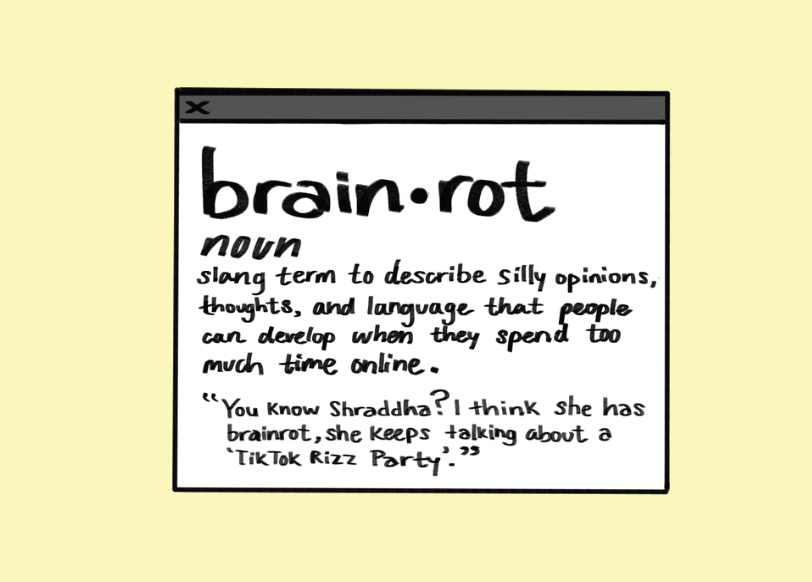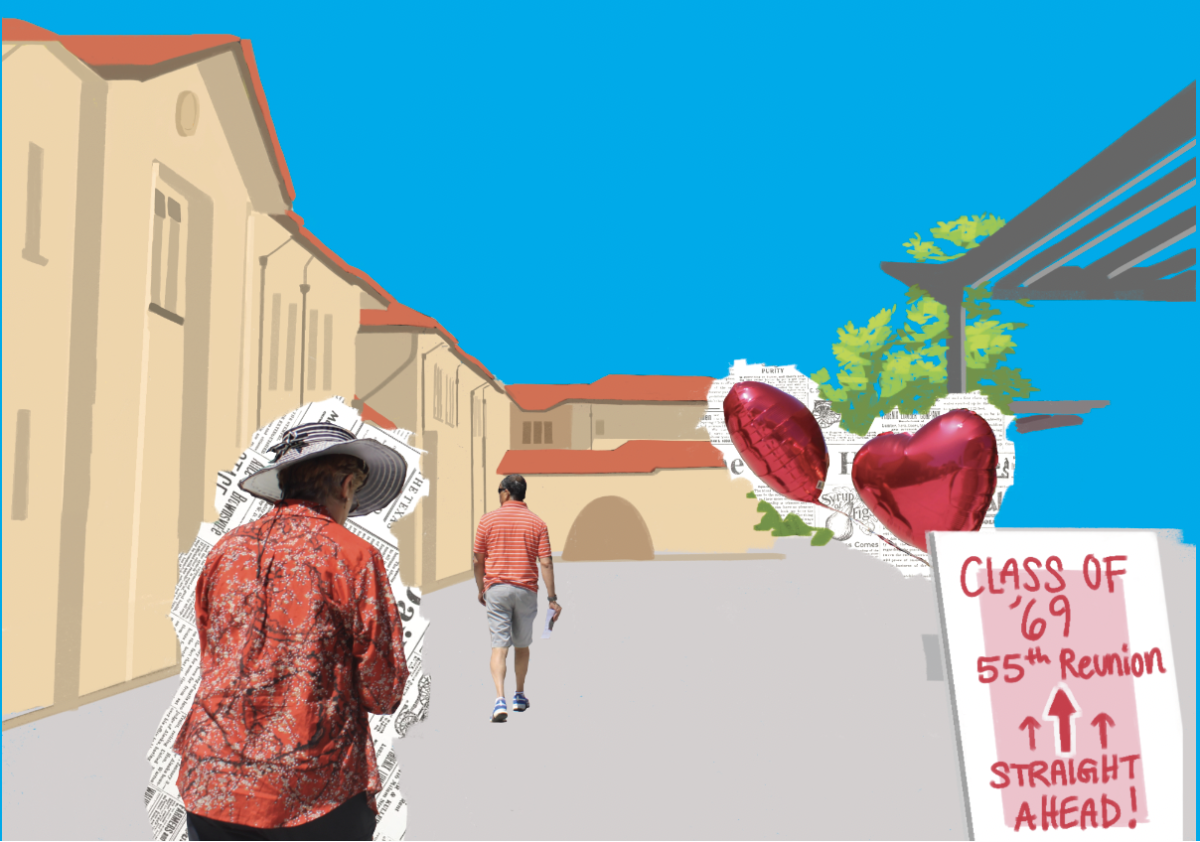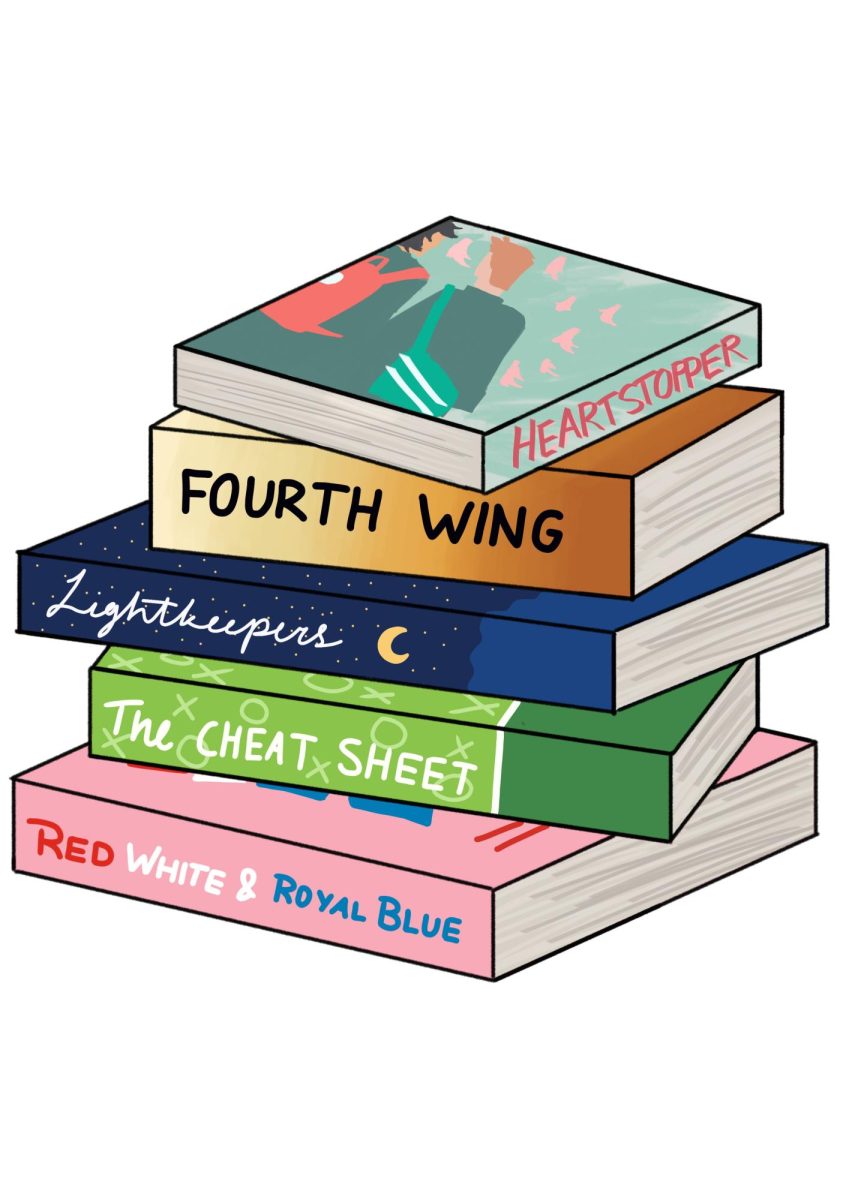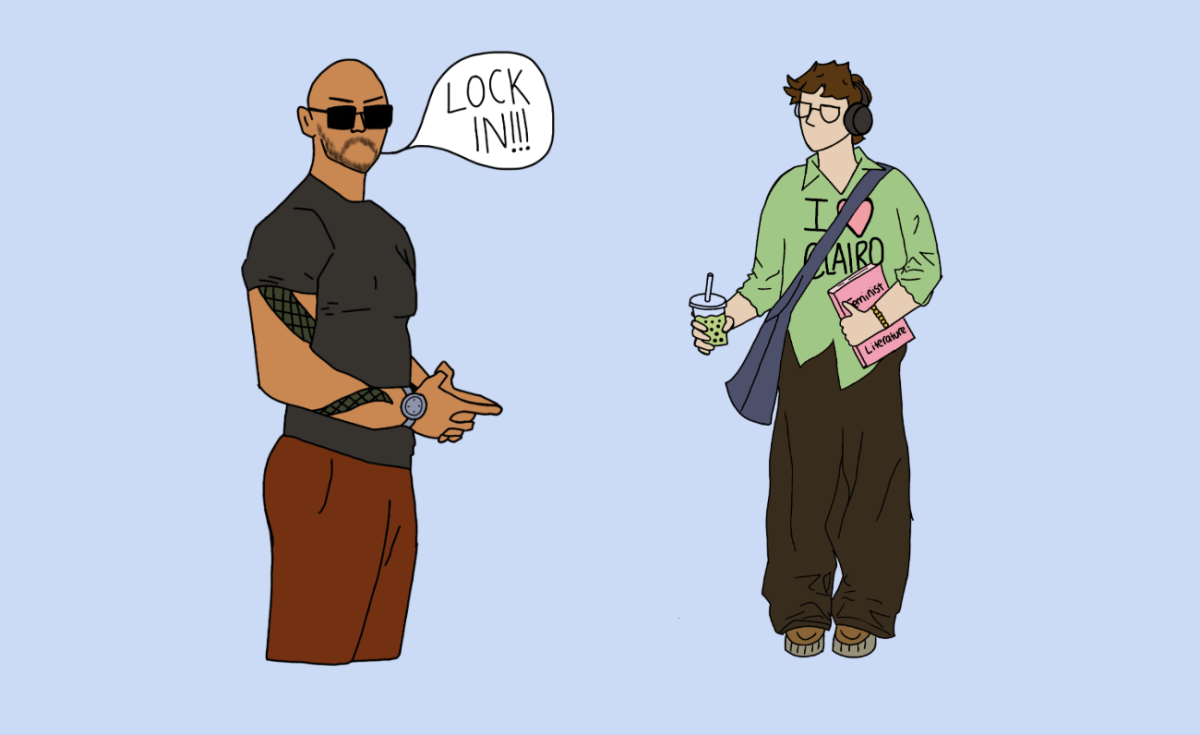Ever since the release of the first Skibidi Toilet video, students all across FHS have been spending hours scrolling through TikTok and Instagram Reels. As a result, those videos have largely influenced their vocabulary, and common dialogue frequently features phrases such as “Fanum tax,” “Ohio,” “rizz,” “Skibidi,” “gyatt” and “sigma.”The phenomenon, the video content and its effect on vocabulary, has been dubbed as “Brain Rot.”
Students who are exposed to brain rot, who are a part of Gen Alpha or Gen Z, often spend a large amount of their time on social media sites. According to the Common Sense Census carried out in 2021, children in the U.S. spent an average of 113 minutes per day on Tiktok, with Snapchat and Instagram following closely. The pandemic has also doubled the rate of media use in tweens and teens. The prevalence and normalization of social media overuse has led many to overlook the media’s detriments.
“I actually don’t spend that long [on social media],” freshman Avani Malunjkar said. “About five hours a day.”
The increase in students with brain rot has the potential to cause a myriad of long-term effects, some of which are showing already, apparent to even self-proclaimed “brain rot community members.”
“For some people, you can tell if they have a skibidi aspect to their aura or when you walk by them you can smell the stench that comes off them,” senior Shaunak Patil said. “That usually makes them seem like they’re on TikTok very often.”
The stereotype of smelly gamers with hunched backs has carried over to those who indulge in “brain rot” content on the daily. Some other key identifiers of those with brain rot may be that telltale nook on one’s pinky finger where their phone rests during their multiple hours of doom scrolling a day or seemingly unending dark circles from their overall lack of sleep. The consequences of social media addiction has many wary of brain rot content, but there may be more benefits than they expect.
Though “brain rot” content is unappealing at first glance, with its nonsensical terms forming almost a new language of sorts — only coherent to those who put in the conscious effort to understand — the laughable nature of the words and their origins create a close-knit group of individuals, a community on social media that feels like a big inside joke.
“I think they’re a great group of terms that bring people together in the TikTok community,” Patil said. “They can bring everyone’s humor together no matter the age.”
Due to just how prevalent “brain rot” content has become, it has also bled into the everyday lives of students at FHS. The influence of these terms in formal classroom settings has caused grievances among some.
“You should know when something is a formal setting and when something is a humorous setting,” Malunjkar said. “Only use brain rot in humorous settings instead of serious settings, because people will be talking about brain rot [when it is not appropriate] and that’s not okay.”
While brain rot is not a medically diagnosable issue, it is a common phenomenon taking social media by storm. Whether or not one chooses to become a part of this online community, learning this linguistic miracle may become a necessity for life in the near future.





















